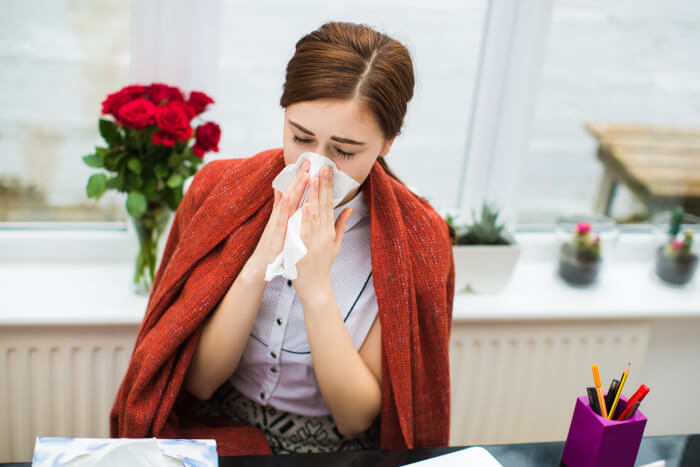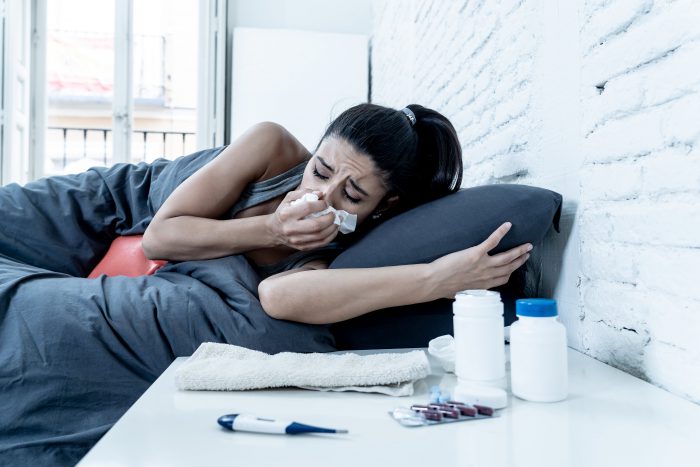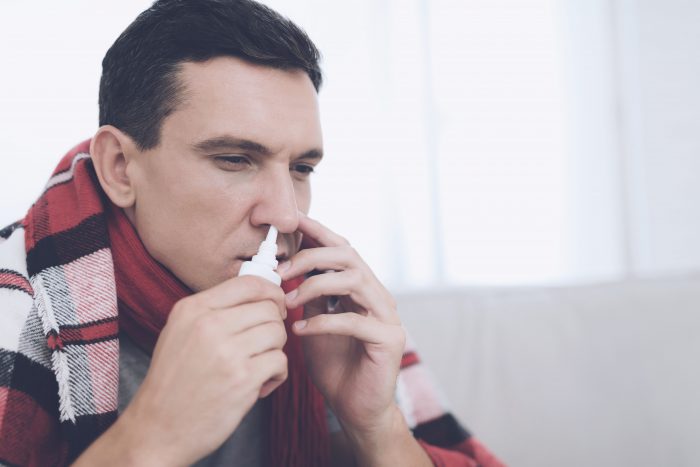
In autumn and winter from around September through to February (or even spring and early summer), it’s the time for those horrible sniffles, chills and colds. None of these are particularly dangerous to your health and you will feel ‘rotten’ for a few days – but it’s not Covid.
We all know that coronavirus can be life-threatening, and even though flu can develop into a miserable few days or a week, it is unlikely to hospitalise you unless you are vulnerable due to other conditions. Other than the exhaustion caused by coughing and blowing your nose every 5 minutes, you will get through it eventually!

People use the word ‘flu’ a little too loosely, as any bad cold suddenly becomes the flu! A heavy cold can be miserable at the time, but it is not flu!
Colds etc, comprise of a combination of viral strains and each year, researchers and virologists keep a track on the progress of these viruses, almost as soon as the first flu season is over, so that the vaccine produced for that year for influenza is the most effective. It is unlikely to stop it, but it certainly provides assistance in keeping symptoms minimal.
The UK public are provided with a vaccination if they are 60+, but this year this has been extended to the over 50s, certain age groups of children and the most vulnerable. Your GP surgery will usually contact you when your time is required. Vaccinations usually begin in September and will continue through the winter months, hopefully to provide some protection.
The latest development on Covid-19 comes in the form of a booster jab, which doctors hoped would be available for certain population groups from September onwards.
It is not a guarantee to be able to do this, but simple solutions can have some effect, and are not unfamiliar to us due to the Covid epidemic:
Over the counter medications (OTC) may help some people but can sometimes be expensive for what they offer and are often no more effective than old-fashioned methods such as gargling with light salty water so this is always a low cost option to try first.

The only other item your GP is likely to advise on is paracetamol but be careful with the dosage. This will help with any pain and fever.
Once you have a bad cold or flu, no extravagant exercise is recommended, but as much rest and sleep as possible. Sleep can be difficult to come by at night, so grab both rest and sleep when you can.
Unfortunately, there is no magical cure or remedy for either colds or flu, just remedial things that you can do to try to get over it more comfortably.
Finally, spare a thought for the health service and how their winter season is busy and if you are able to mild symptoms yourself, however if you are concerned you can always seek advice from the NHS. Also, consider colleagues in your place of employment, and not going to work – you may spread the infection on.
Tags: Cold, Cold season, Flu, Flu Season, General Health